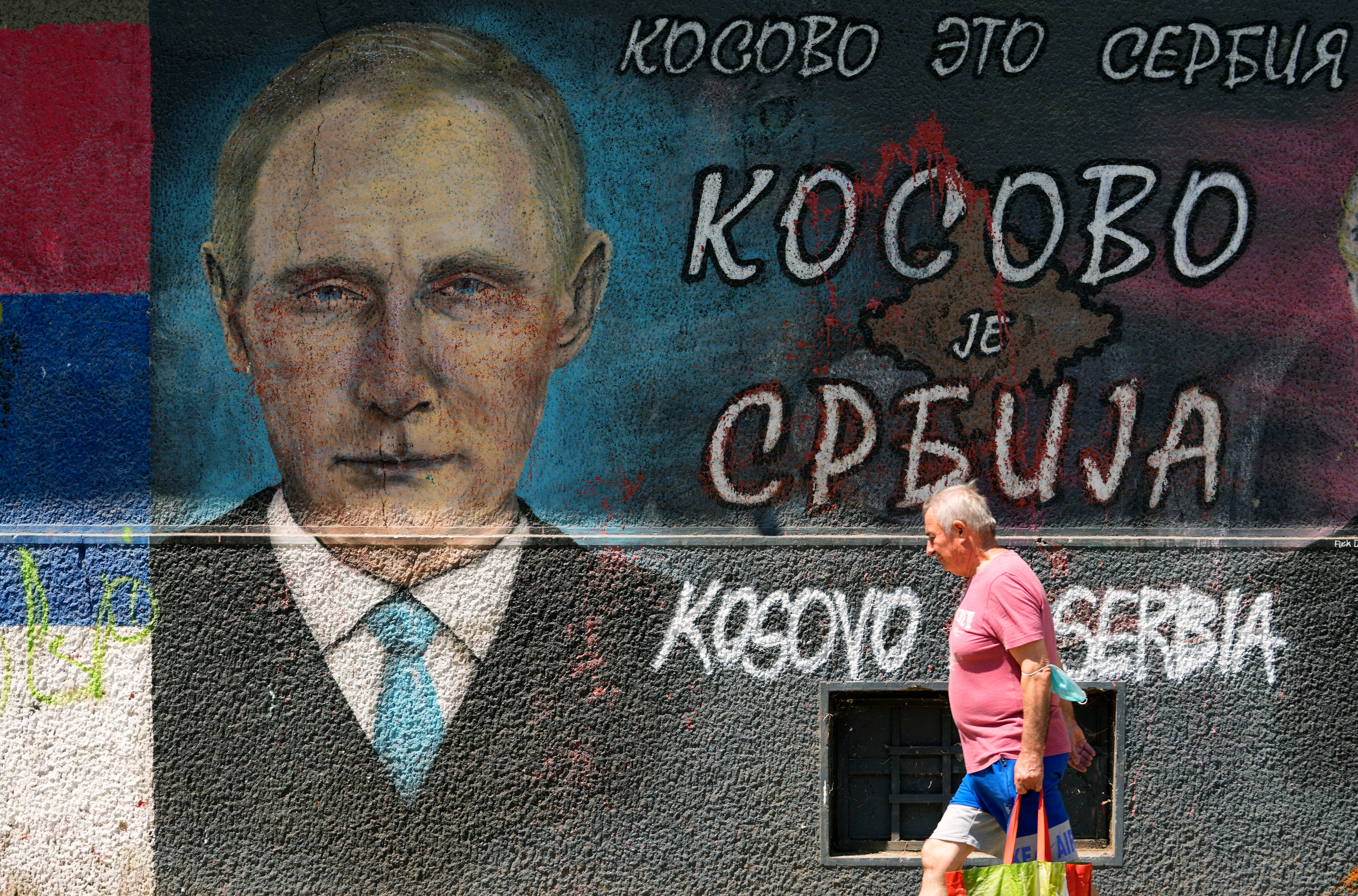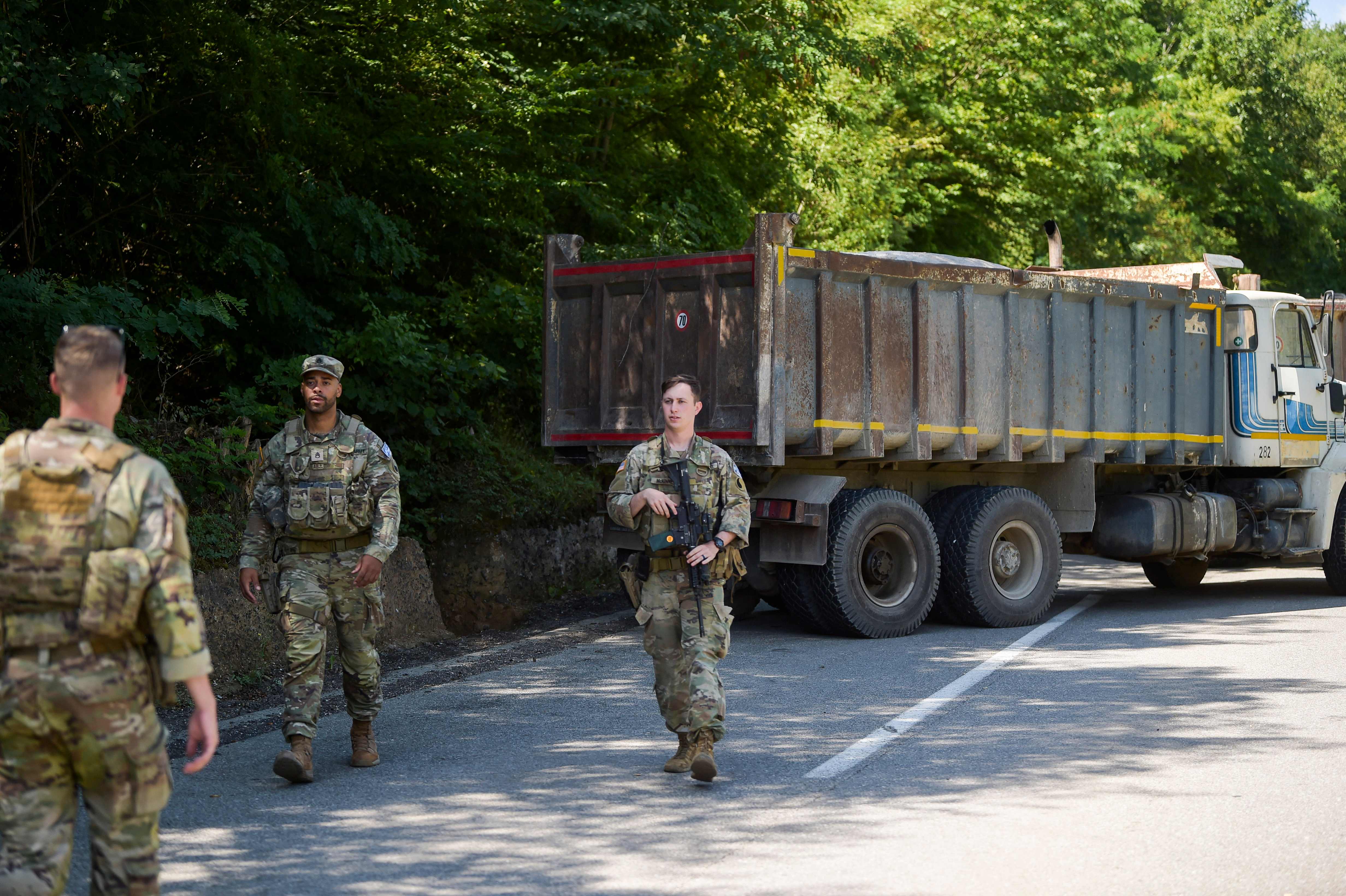Another European flashpoint: Kosovo delays controversial rules as Serbia tensions rise
A new rule on licence plates has led to old hostilities resurfacing, writes David Harding

Since Russia’s invasion of Ukraine in February transformed the European security order, there has been plenty of speculation about where the next flashpoint could be in a continent that has traditionally been a tinderbox.
Attention is now centred on Kosovo.
Tensions in the Balkans are escalating, seemingly revolving around a series of administrative decisions by the Kosovan government but playing on long-established regional faultlines.
One of the decisions was a demand to make Serbs living in the north use Kosovan car plates, not Serbian ones. A similar attempt caused protests last year, with the Kosovo government in Pristina eventually backing down.
Another rule requires visitors from Serbia, including Serbs living in Kosovo without Kosovan documents, to get an extra document at the border.
In other regions, this might seem like bureaucratic inconveniences, but in Kosovo, it is far more than that, especially with the backdrop of the Ukraine war.
Fourteen years ago, Kosovo declared independence from Serbia and has been recognised as an independent state by more than 100 countries. However, neither Serbia nor its staunch ally, Russia, have recognised it. It also has a Nato peacekeeping force on its territory.
The Kosovo government has long accused neighbouring Serbia of trying to destabilise the country which declared independence in 2008 after a Nato intervention that stopped Serbia’s bloody crackdown against ethnic Albanian separatists in 1999.
Officials in Kosovo had earlier decided that as of 1 August they would bring in the number plate rule.
For the past 11 years, the reverse had been required by Serbia for vehicles entering from Kosovo to travel through Serbia.
Kosovo is also planning to block its ethnic Serb minority from using only Serbian identity cards when crossing the border.
After discussions with European and US partners, the “reciprocity” licence plate and identity card plan was postponed for a month, until 1 September, the Kosovan government said.
EU foreign policy chief Josep Borrell welcomed the move, adding that he expected all roadblocks “to be removed immediately”.
A Kosovan government statement said many “aggressive acts” such as blocking roads and firing guns in the northern areas dominated by ethnic Serbs took place on Sunday, and accused Serbia of inciting them.
Kosovan prime minister Albin Kurti and president Vjosa Osmani blamed Serbian president Aleksandar Vucic for the latest protests.
“Vucic and [Petar] Petkovic are the main responsible persons for the riots,” Mr Kurti wrote on Facebook. Mr Petkovic is Belgrade’s official in charge of Kosovan affairs.
Ms Osmani wrote on Facebook that “Vucic’s efforts to destabilise Kosovo” would fail.
Mr Vucic responded by saying “we’ve never been in a more complex situation than today” and blamed Kosovo for the escalating tensions.
He accused Kosovo of trying to make itself the victim and “taking advantage of the mood in the world where they think they can play cards”, he said, adding that Mr Kurti is trying to be seen in the same light as Ukrainian President Volodymyr Zelensky.
Mr Vucic said Kosovo cannot stop its ethnic Serbs from using Serbian identity cards when they cross the border. He later visited Serbian Army headquarters in Belgrade in what was seen as a thinly veiled warning that all options - including military action - were on the table.

Serbian ally Russia denounced the Kosovo government, saying the latest measures were intended to chase remaining Serbs out of Kosovo. There are fears in the West that Russia could use Serbia to destabilise the Balkans and shift some attention from its war in Ukraine.
The Nato-led peacekeeping mission in Kosovo said it was monitoring the “tense” situation in northern Kosovo and was “prepared to intervene if stability is jeopardised”.
The force said it would “take whatever measures are necessary to keep a safe and secure environment in Kosovo at all times, in line with its UN mandate”.
The mission, which has 3,800 soldiers from 28 countries, is led by Nato but is supported by the United Nations, the European Union and others.






Join our commenting forum
Join thought-provoking conversations, follow other Independent readers and see their replies
Comments